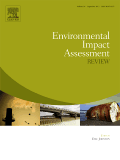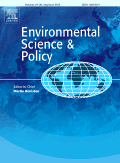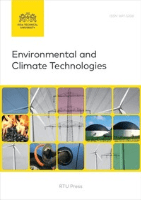
Environmental Impact Assessment Review
Scope & Guideline
Fostering impactful research for a sustainable future.
Introduction
Aims and Scopes
- Environmental Impact Assessment (EIA) Methodologies:
The journal publishes studies that develop, refine, and evaluate methodologies for conducting environmental impact assessments, ensuring rigorous and systematic approaches to assess potential environmental consequences. - Sustainable Development and Policy Formulation:
Research often revolves around how environmental assessments can inform and shape sustainable development policies, including the integration of sustainability considerations into planning and regulatory frameworks. - Climate Change and Environmental Resilience:
A significant focus is on climate change impacts and adaptation strategies, examining how various sectors can enhance resilience and reduce vulnerability through effective environmental assessment. - Ecosystem Services and Biodiversity:
Studies related to assessing and valuing ecosystem services and biodiversity impacts are prevalent, reflecting the journal's commitment to understanding ecological health alongside human development. - Stakeholder Engagement and Social Dimensions:
The journal emphasizes the importance of stakeholder participation in the EIA process, exploring how social dynamics influence environmental decision-making and project outcomes. - Technological Innovations in Environmental Assessment:
Research on how emerging technologies, such as AI and big data, can enhance the efficiency and effectiveness of environmental assessments is increasingly featured, reflecting a trend towards integrating advanced analytical tools.
Trending and Emerging
- Integration of Social Equity in Environmental Assessments:
There is a rising trend in studies addressing social equity and justice within the EIA process, focusing on how environmental decisions impact different communities and the importance of including marginalized voices. - Climate Change Mitigation and Adaptation Strategies:
Research increasingly emphasizes the role of EIAs in addressing climate change, exploring mitigation pathways and adaptation measures that can be integrated into planning processes. - Cumulative Impact Assessment:
An emerging focus on cumulative impacts reflects a recognition that individual projects can have significant collective effects on the environment, prompting calls for assessments that consider these broader implications. - Use of Digital Tools and Data Analytics:
The integration of digital tools, such as geographic information systems (GIS) and machine learning, is becoming more prevalent, enhancing the capacity for data-driven decision-making in environmental assessments. - Transboundary Environmental Issues:
A growing body of research addresses transboundary environmental impacts, particularly in contexts involving shared resources or ecosystems, emphasizing the need for collaborative assessment frameworks.
Declining or Waning
- Traditional EIA Frameworks:
Research centered on conventional EIA procedures has become less prominent, as the field moves towards more integrative and adaptive approaches that consider broader environmental and social factors. - Sector-Specific Studies:
There has been a noticeable decline in papers focusing solely on sector-specific impacts (e.g., agriculture, mining) without integrating cross-sectoral analysis or considering cumulative impacts. - Descriptive Case Studies:
The journal has shifted away from purely descriptive case studies towards more analytical and quantitative research, indicating a move towards evidence-based assessments and modeling.
Similar Journals

ENVIRONMENTAL SCIENCE AND POLLUTION RESEARCH
Driving Innovation in Pollution Research and ManagementEnvironmental Science and Pollution Research is a premier international journal published by Springer Heidelberg, dedicated to advancing knowledge in the field of environmental science and pollution. With an impressive impact factor reflecting its vital contributions to research, the journal is categorized in the top quartiles (Q1 and Q2) across several domains, including Health, Toxicology and Mutagenesis, and Environmental Chemistry. Established in 1994, it continues to be a critical resource for researchers, professionals, and students focusing on pressing environmental issues. The journal provides an insightful platform for disseminating significant findings related to pollution and its effects on health and the environment, contributing to a better understanding and resolution of these challenges. While it currently does not offer Open Access options, its inclusion in prominent rankings, such as the Scopus rankings, underscores its reputation and influence within the scientific community.

ENVIRONMENTAL SCIENCE & POLICY
Innovating solutions through interdisciplinary research.ENVIRONMENTAL SCIENCE & POLICY, a leading journal published by Elsevier, serves as a pivotal platform for research that intertwines environmental science with policy development. With an ISSN of 1462-9011 and an E-ISSN of 1873-6416, this journal contributions outrival many, reflected by its 2023 Scopus rankings placing it in the Q1 category in both Geography, Planning and Development (Rank #36/821, 95th percentile) and Environmental Science, Management, Monitoring, Policy and Law (Rank #38/399, 90th percentile). Covering a broad spectrum of topics, it addresses critical interdisciplinary issues from 1998 to the present, fostering dialogue among researchers, policymakers, and practitioners alike. Although it does not offer Open Access options, the journal's rigorous peer-review process ensures high-quality and impactful publications, vital for anyone invested in advancing knowledge and practice in environmental governance and sustainable policy frameworks.

Regional Sustainability
Fostering global collaboration for sustainable development.Regional Sustainability is a premier open access journal published by KEAI PUBLISHING LTD, devoted to the interdisciplinary exploration of sustainable practices within urban and regional contexts. Since its inception in 2020, this journal has quickly established itself as a leading platform for innovative research, currently holding a strong position in category quartiles, including Q1 rankings in Development and Geography, Planning and Development in 2023. With its broad scope encompassing essential themes in Renewable Energy and Urban Studies, Regional Sustainability provides valuable insights and advances knowledge critical for sustainable development, drawing contributions from scholars and practitioners worldwide. The journal’s impressive Scopus rankings underscore its significance with a percentile rank of 87th in both Urban Studies and Development, making it essential reading for researchers and policymakers alike. The journal is headquartered in Beijing, China, and is committed to disseminating high-quality research that addresses contemporary challenges in sustainability.

Ecosistemas
Bridging knowledge and action for ecological resilience.Ecosistemas is a prominent Open Access journal published by the ASOCIACION ESPANOLA ECOLOGIA TERRESTRE, specializing in the field of ecology. Since its inception in 2001, it has dedicated itself to advancing ecological knowledge and research, fostering an inclusive platform for the dissemination of cutting-edge studies that span ecological interactions, sustainability, and biodiversity. The journal, based in Spain, has established its reputation with notable rankings such as Q3 in the field of Ecology and Q4 in Ecology, Evolution, Behavior, and Systematics, reflecting its commitment to quality research. With a Scopus Ranks position placing it in the 40th and 37th percentiles for its categories, Ecosistemas is integral to the academic community, serving researchers, professionals, and students alike. It provides a vital resource for those seeking to understand ecological dynamics and environmental challenges, facilitating open access to important findings and discussions that shape the future of our ecosystems.

ENVIRONMENT DEVELOPMENT AND SUSTAINABILITY
Innovating Pathways to Sustainable FuturesEnvironment, Development and Sustainability is a leading academic journal published by Springer, dedicated to advancing the understanding of the intricate relationships between environmental processes, human development, and sustainable practices. With an ISSN of 1387-585X and an E-ISSN of 1573-2975, this journal provides a platform for high-quality interdisciplinary research that integrates insights from economics, geography, and environmental policy. As of 2023, the journal boasts an impressive impact factor ranking, positioned in the Q2 category for Economics and Econometrics, Q1 for Geography, Planning and Development, and Q2 for Management, Monitoring, Policy and Law. This impressive stature has earned it a significant Scopus ranking, placing it within the top tiers of its field, particularly in Social Sciences and Environmental Science. With a publication timeline extending from 1999 to 2024, the journal serves as a valuable resource for researchers, professionals, and students alike, promoting knowledge exchange and fostering groundbreaking ideas essential for sustainable development. Although it operates under a subscription model, the impact of its articles is profound, making it a pivotal outlet for researchers striving towards sustainability in a rapidly changing world.

EARTH is a prestigious journal published by MDPI, located in Switzerland, with a commitment to advancing the fields of Earth and Planetary Sciences and Environmental Science. Launched in 2020, the journal emphasizes an open-access publication model, ensuring that high-quality research is widely accessible to the scientific community and beyond. As of 2023, it proudly holds a Q2 ranking in both the Environmental Science and Earth and Planetary Sciences categories, indicating its significant impact within these disciplines; it ranks #90 out of 219 and #70 out of 159 in their respective fields according to Scopus. With the convergence of multidisciplinary research and the critical challenges our planet faces, EARTH seeks to publish innovative studies that foster a deeper understanding of geological and environmental processes. Researchers, professionals, and students alike will find this journal an invaluable resource for the latest findings and discussions shaping our understanding of Earth sciences.

Journal of Environmental Science and Management
Innovating solutions for sustainable management practices.Journal of Environmental Science and Management, published by the University of the Philippines Los Baños College, serves as a vital platform for disseminating research findings and innovations in the field of environmental science and management. With an ISSN of 0119-1144, this journal aims to foster multidisciplinary discussions and advancements in sustainability practices and environmental policy, primarily focusing on the unique challenges faced in the Philippines and similar ecological contexts. Despite being categorized in the Q4 quartile for Environmental Science (miscellaneous) and holding a SCOPUS rank of #191/233, it provides crucial insights and practical solutions for a diverse audience ranging from researchers to policymakers. While it does not currently operate under an open-access model, its commitment to quality research continues to make it a notable source in the environmental science community. The journal covers a broad timeframe from 2011 to 2024, capturing evolving dynamics in the environmental landscape. Contributing to this journal not only enhances the visibility of local and regional environmental research but also aids in addressing global environmental challenges.

Global Sustainability
Advancing Knowledge for Global ChangeGlobal Sustainability, published by Cambridge University Press, serves as a pivotal platform for interdisciplinary research in the realms of sustainability, management, and environmental policy. Since its establishment as an Open Access journal in 2018, it has empowered researchers, professionals, and students by ensuring that high-quality research is widely accessible. With an impressive impact factor reflected in its Q1 category rankings in both Global and Planetary Change and Management, Monitoring, Policy and Law, this journal is at the forefront of advancing knowledge and strategies crucial for sustainable development. Operating from its headquarters in Cambridge, United Kingdom, this journal not only influences academic discourse but also plays a significant role in shaping public policy and practices towards a more sustainable world. Researchers are encouraged to submit innovative contributions as the journal continues to converge impactful scholarship from 2018 to 2024 and beyond.

Environmental and Climate Technologies
Championing Open Access to Environmental Knowledge.Environmental and Climate Technologies is a premier open-access journal dedicated to advancing knowledge in the fields of environmental science and renewable energy. Published by SCIENDO since 2009, this journal plays a crucial role in disseminating innovative research and interdisciplinary studies that address the pressing challenges posed by climate change and sustainable development. With its current positioning in the Q2 quartile for Environmental Science (miscellaneous) and Q3 for Renewable Energy, Sustainability and the Environment, it is recognized for its significant contributions to the academic community, ranking #107 out of 233 in General Environmental Science and #161 out of 270 in Renewable Energy. Hailing from Germany and operating under an open-access policy, Environmental and Climate Technologies ensures that research remains accessible to a global audience, fostering collaboration and discussion among researchers, professionals, and students alike. The journal invites rigorous scientific inquiries and practical solutions that can mitigate the impact of climate-related issues, making it a vital resource for those committed to environmental stewardship and sustainability.

Resources Environment and Sustainability
Unlocking Knowledge for Sustainable Practices and PoliciesResources Environment and Sustainability is a premier academic journal published by ELSEVIER, dedicated to advancing knowledge in the fields of environmental science, engineering, and sustainability practices. Recognized for its rigorous peer-review and high-quality research, the journal boasts an impressive impact factor and consistently ranks in the first quartile across multiple categories, including Environmental Engineering, Environmental Science, Management, Monitoring, Policy and Law, and Pollution. With its Scopus rankings placing it among the top journals—#7 in Environmental Science and #12 in Environmental Engineering—this journal provides a vital platform for researchers, professionals, and students seeking to contribute to evolving policies, innovative management strategies, and cutting-edge environmental solutions. Hosted in the Netherlands, Resources Environment and Sustainability is committed to fostering interdisciplinary dialogue and disseminating high-impact research that addresses the pressing challenges of our times. This journal embraces open access principles, ensuring that the wealth of knowledge it publishes remains accessible to a global audience.